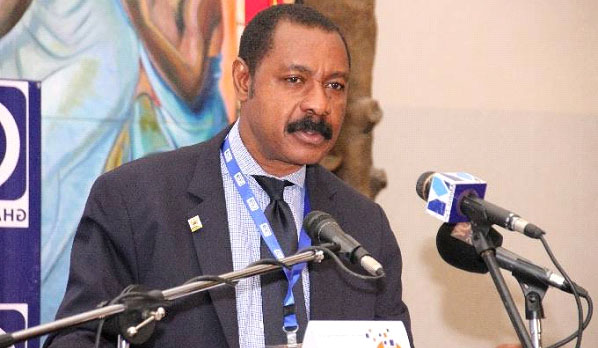The Private Enterprises Federation has expressed worry about Ghana’s competitiveness in the African Continental Freed Trade Area (AfCFTA), but has proposed six-pronged strategies to build the country’s competitiveness.
For instance, it said cost of credit is Ghana's weakest point as the country ranks at the bottom of the list when compared to the top African exporters. The 14.5% policy interest rate in Ghana as of January 2021 is double the African average of 7%, and also compares unfavorably to 1.5% in Morocco, 3.5% in South Africa, 4.5% Cote d'Ivoire.
Also, Ghana's current average tariff of 12.9 cents per kilowatt-hour for industrial consumers as of December 2020 is less competitive against countries such as Zimbabwe, Tanzania, Malawi, Botswana, DR Congo, Mozambique, Zambia, Ethiopia – which all had cost of power less than 10 cents per kilowatt-hour as at 2016.
Speaking at a sensitization workshop of private sector players on AfCFTA, Chief Executive Offcer of PEF, Nana Osei Bonsu said Ghana's Productive Capacity (Labour Quality & Skills Availability and Innovation & Production Potential Utilization) compares poorly to many of the leading countries in the AfCFTA.
According to data analyzed from the World Bank Enterprise Surveys, Ghana's total productive capacity score out of a possible score of 10 is 4.75 – falling below half of the total score and below the average score for the top African countries.
He also noted that Ghana's customs efficiency is not among the best in Africa even though the country ranks above the African average.
“Time efficiency of customs in Ghana, is estimated at 197.3 hours – compared to 40 hours in Kenya, the fastest among the frontier countries. Regarding cost of meeting documentary and border compliance, it costs US$645 in Ghana compared to US$262.7 in Morocco, Egypt, Morocco and South Africa pose the most competitive threat to Ghana in external markets where Ghana has the largest estimated export potential”.
To ensure the participation of businesses in the AfCFTA, Nana Osei Bonsu recommended the development and dissemination of a schedule for implementing the 13 years staggered tariff reduction arrangement under the AfCFTA, undertake a mapping and review of status of implementation of AfCFTA in other African Countries as well as build the support systems for boosting agricultural production and value addition, Intellectual property right protection to promote research and development.
Additionally, he urged the authorities to undertake country level diagnostics through the establishment of National Agribusiness Apex Chambers/Bodies to enhance Intra Africa trade as well as adopt improved farming practices such as enhancing agricultural production through greenhouses.
Africa’s economy
Africa’s economic growth relies heavily on low value-added sectors, such as the oil and mining sectors (the main sources of revenue for most African governments) and commodity exports with relatively low pay and hence little positive impact on domestic demand.
In terms of trade, despite decades of negotiations and agreements within subregions and RECs in Africa, intra-African trade remains a tiny proportion of the continent’s overall trade.
Intra Africa trade for 2019 was valued at $69 billion, 5% less than in 2018. Intra Africa trade accounted for 15% of Africa’s total trade in 2019.
Latest Stories
-
Oscar rules updated for 2025 awards
3 mins -
Ashanti Region ECG Workers Union ban 4 general managers from attending REGSEC meetings
4 mins -
Minority wades into renaming of Ho Technical University after Ephraim Amu
19 mins -
Accra Lions youngster Emmanuel Dzigbah receives meniscus treatment in Serbia
22 mins -
My over $8000 oxygen machine blew up due to dumsor – Joy FM listener narrates harrowing ordeal
34 mins -
Four more persons remanded over Tema-Mpakadan train accident
41 mins -
Bobrisky appeals against six-month sentence
45 mins -
Ashanti West ECG uncovers 74 illegal connections
52 mins -
Assenso-Boakye’s comment that development is dependent on partisan politics worrying – CDD Ghana Fellow
1 hour -
Samira Bawumia lauds Kanéval, others for igniting passion for reading among children
1 hour -
Some supporters of Movement for Change return to NPP
2 hours -
NPP running mate saga: Stop putting pressure on Bawumia – Group tells lobbyists
2 hours -
IES calls for immediate removal of Matthew Opoku Prempeh over deteriorating energy crisis
2 hours -
GFA reschedule selected MD 28 fixtures to ensure maximum support for Dreams FC
2 hours -
A new financing model for SHS will leverage private sector to finance infrastructure – Bawumia to CHASS
3 hours

